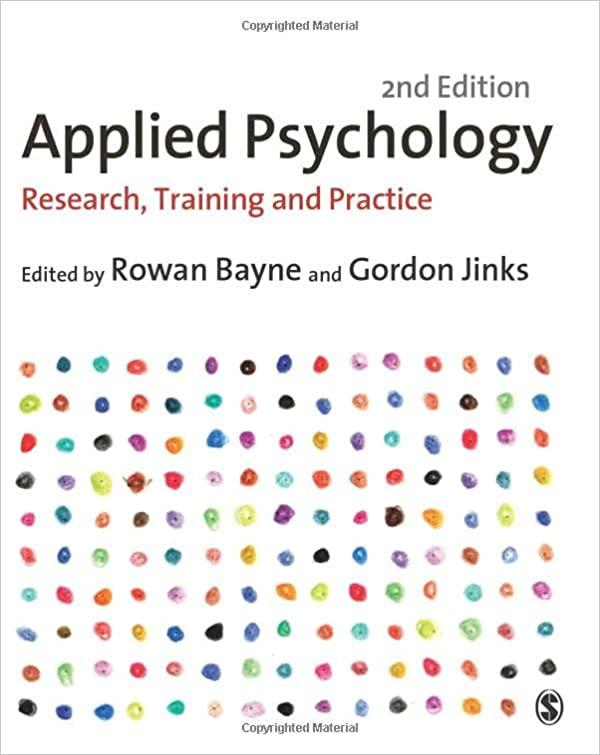Question
In our study of memory, the research we have been reviewing is relatively recent and by relatively, we mean it is knowledge that we have
In our study of memory, the research we have been reviewing is "relatively" recent and by relatively, we mean it is knowledge that we have accumulated in the past 10 to 40 years!
But in this Ted Talk, you will be learning about research that is taking place even as you are studying it. Two neuroscientists, Stephen Ramirez and Xiu Liu, explain how they are learning to identify where a memory lives and whether it can be modified. It is fascinating!
Please watch this Ted Talk, https://www.youtube.com/watch?v=EXo3qA9V3eI
Aspect A: Walk readers through your understanding of how to find a memory and modify it. Be sure to mention brain structures you understand to be important in memory development
Aspect B: The researchers in the video use mice to explore memory. Discuss how the research was conducted. How did the researchers feel when their idea worked and how did they report their findings to the scientific community? If you were designing research to explore memory, what would your research look like?
Aspect C: Imagine we were able to modify memories easily, based on the knowledge shared in this video. Discuss your thoughts on the pros and cons of being able to do this. Provide at least one specific hypothetical example of the benefit or detriment of doing so.
Aspect D: Based on what you have learned in the textbook, lecture, and this video, reflect on your own memory functioning. Draw from the knowledge you have learned to reflect on some ways that you might improve your memory and impact your success in college.
Step by Step Solution
There are 3 Steps involved in it
Step: 1

Get Instant Access to Expert-Tailored Solutions
See step-by-step solutions with expert insights and AI powered tools for academic success
Step: 2

Step: 3

Ace Your Homework with AI
Get the answers you need in no time with our AI-driven, step-by-step assistance
Get Started


